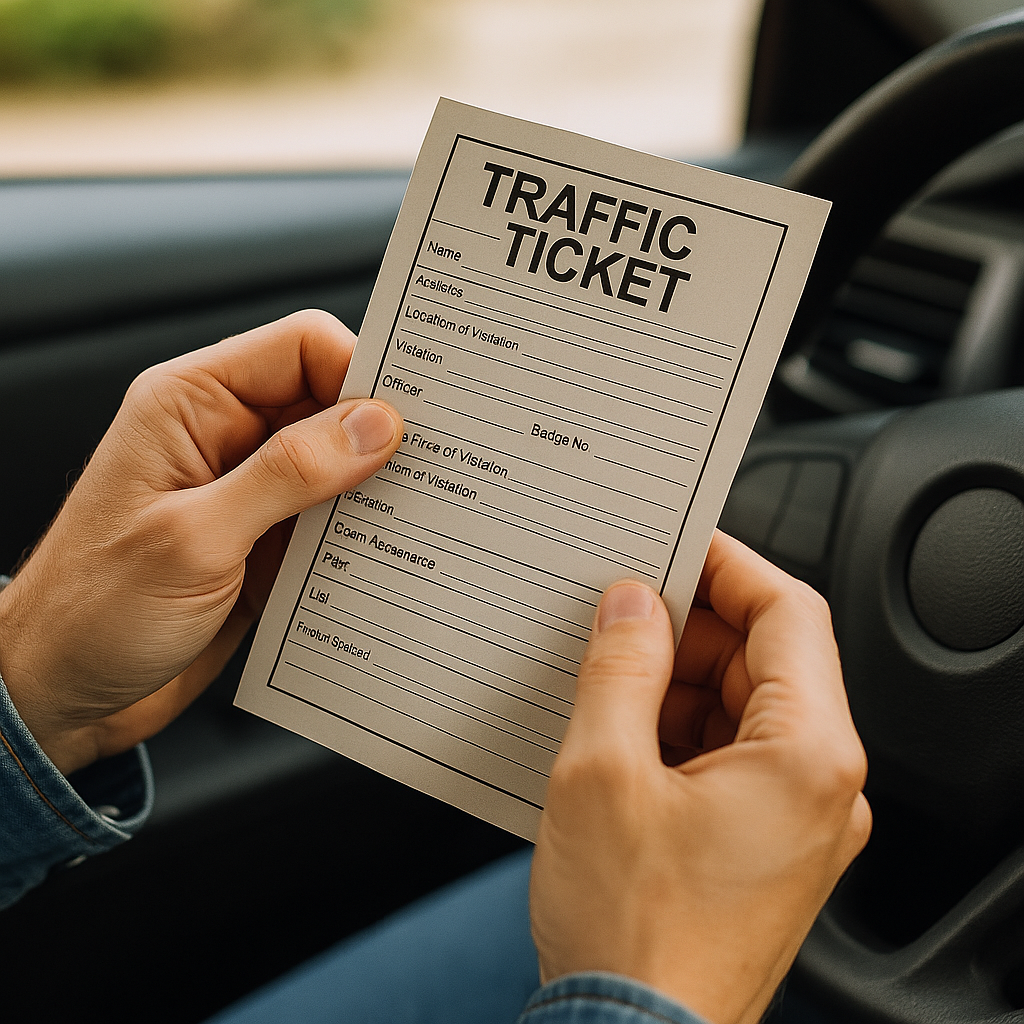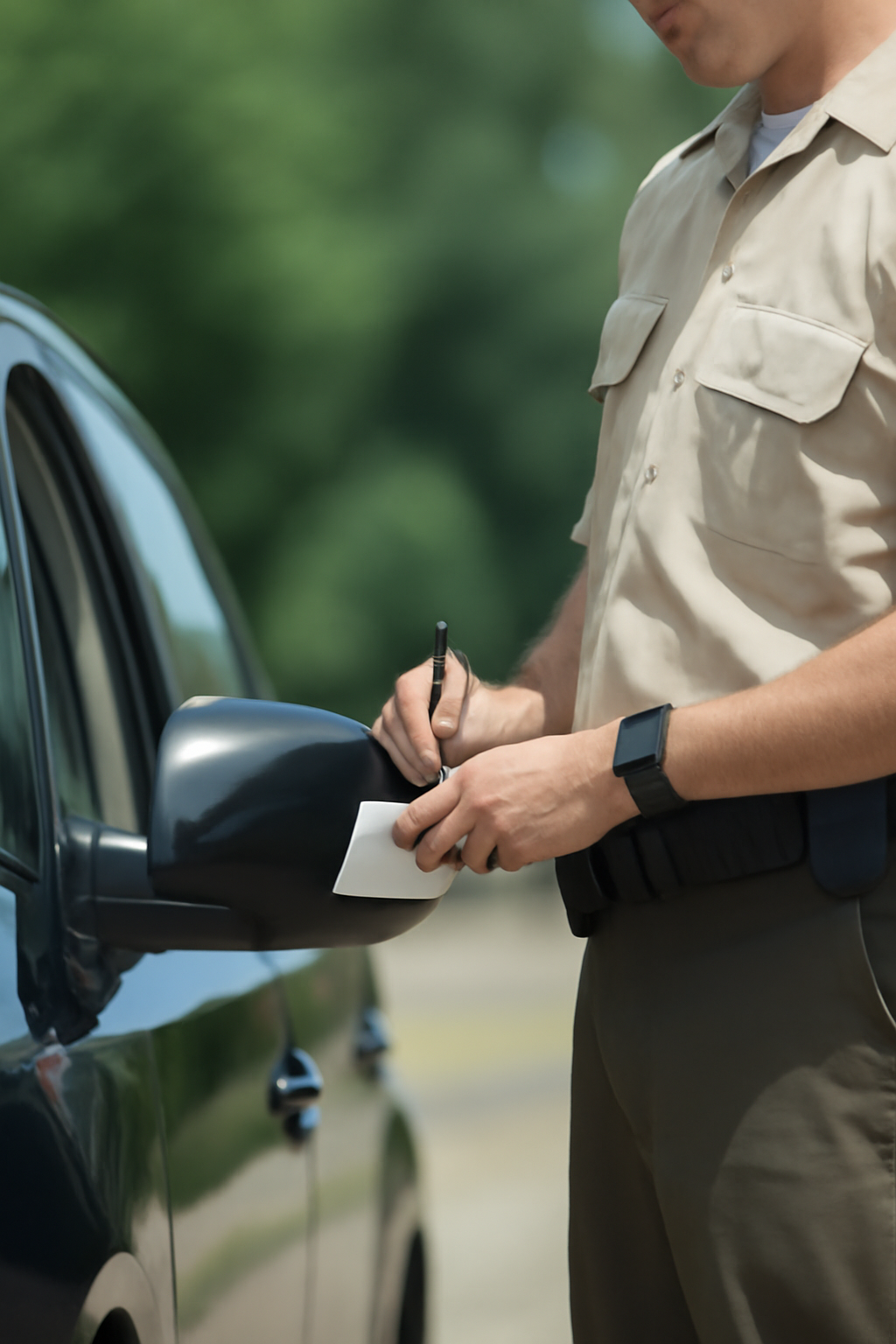Traffic Violation: What to Expect Next
It happens in an instant—blue lights appear in your mirror, you pull over, and within minutes, you’re handed a traffic violation. For many people, this small piece of paper brings more questions than answers. What happens next? Do I just pay the fine? Will this go on my record? Do I have to go to court?
Traffic violations are more than an inconvenience. They can affect your license, your insurance, and sometimes even your job. But the good news is this: once you understand the process, the situation feels a lot less overwhelming.
At Tim Fleming Law Firm, we want to walk you through what to expect from the moment you’re pulled over to the day you appear in court, so you can approach the process with confidence instead of confusion.
Step 1: Receiving the Ticket
The process begins at the roadside. An officer issues a citation that includes:
- The charge (speeding, running a red light, reckless driving, etc.).
- The date, time, and location of the incident.
- Your court date (if one is required).
- Instructions for payment or response.
It’s important to carefully read everything on the ticket. That small slip of paper outlines deadlines and options you don’t want to overlook.
Step 2: Deciding How to Respond
Once you’ve received a ticket, you typically have a few options:
- Pay the Fine: In many cases, paying the ticket means you’re admitting guilt. This often results in points on your driving record and potential insurance increases.
- Contest the Ticket in Court: If you believe there are reasons to challenge the citation, you can choose to appear before a judge.
- Seek Legal Representation: An attorney can explain the potential outcomes of each choice, help protect your rights, and ensure you understand the long-term effects.
The key is not to ignore the ticket. Missing deadlines can lead to late fees, license suspension, or even a warrant in some cases.
Step 3: Preparing for Court
If your ticket requires a court appearance—or if you choose to contest it—you’ll receive notice of your hearing date. Preparing ahead can make the experience smoother.
What You Should Do:
- Mark Your Calendar: Missing your court date can make the situation worse.
- Gather Information: Bring your ticket, any relevant documents, or notes about what happened.
- Know What to Expect: Traffic court is often less formal than criminal court, but the judge still expects order and respect.
In court, you’ll have the chance to hear the charges against you, respond to the judge, and present your side.
Step 4: Court Day
On the day of your hearing, plan to arrive early. Courts can be busy, and rushing in late adds unnecessary stress.
Here’s what usually happens:
- Check In: Let the clerk know you’ve arrived.
- Wait for Your Case: Cases are often heard in the order they appear on the docket.
- Your Turn Before the Judge: You’ll stand before the judge as your case is called. The officer who issued the ticket may also be present.
- Decision: The judge will decide the outcome—this could involve fines, driving school, or other penalties.
Step 5: Possible Outcomes
The results of a traffic case can vary depending on the violation, your driving history, and other circumstances. Common outcomes include:
- Paying a Fine: The most straightforward penalty.
- Traffic School: Some drivers may be allowed to complete driving school to reduce points on their record.
- License Points: Points may be added to your driving record, which can affect your insurance.
- License Suspension: For serious or repeated violations, driving privileges may be suspended.
Understanding these possibilities ahead of time helps you know what’s at stake.
How Legal Guidance Can Help
While many people think of traffic tickets as minor, the effects can add up quickly. Multiple tickets can lead to higher insurance, suspended licenses, or even criminal charges in certain cases. Having an attorney on your side can help you:
- Understand what your ticket means for your driving record.
- Explore alternatives such as traffic school or reduced penalties.
- Avoid mistakes like missing deadlines or admitting guilt without realizing the consequences.
- Have someone speak on your behalf in court.
Legal representation doesn’t erase the stress of a traffic violation, but it does give you clarity and direction when you need it most.
Common Traffic Cases That Lead to Court
Some violations are more likely than others to require a court appearance. These include:
- Reckless Driving: Often considered more serious than speeding.
- Driving Without a License or Insurance: These charges typically involve mandatory court dates.
- High-Speed Violations: Exceeding the limit by a significant margin may carry stricter penalties.
- Multiple Offenses: Repeat violations within a short time period can escalate quickly.
Knowing this ahead of time can help you prepare for what to expect if you’re facing these charges.
Reducing Fear of the Unknown
The thought of going to court can be intimidating, especially if it’s your first time. But breaking the process into steps makes it more manageable:
- Ticket issued.
- Decide how to respond.
- Prepare for your hearing.
- Appear before the judge.
- Address the outcome.
When you know what’s coming, it feels less like a mystery and more like a process you can navigate.
Closing Perspective
A traffic violation may start with a ticket, but it doesn’t end there. From deadlines to court appearances, every step matters. Taking action early, showing up prepared, and seeking guidance when needed can help you manage the process and limit the long-term impact on your life.
If you or someone you know is dealing with a traffic ticket, remember—you don’t have to face it alone. Tim Fleming Law Firm is here to answer your questions and guide you through the process with clarity and care.





